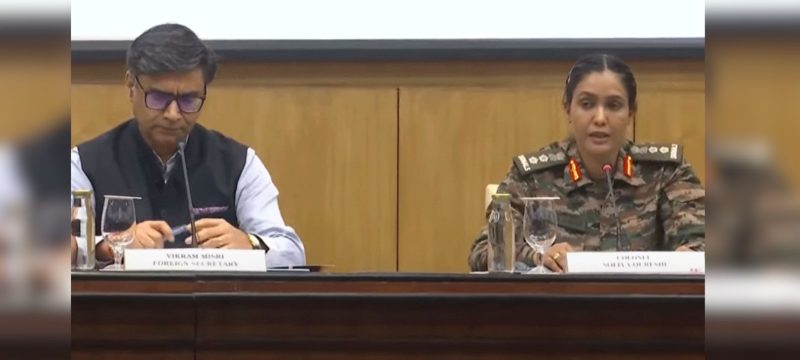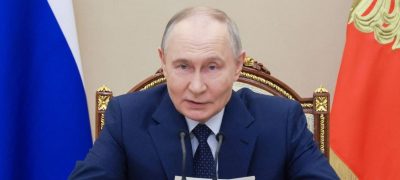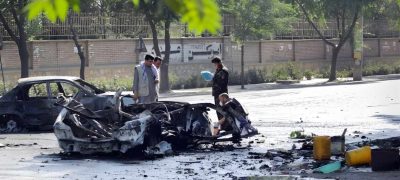On Saturday, the Indian Army acknowledged suffering substantial losses following a series of missile attacks by Pakistan on several key Indian military installations and airbases.
During a press conference in New Delhi, an Indian Army spokesperson confirmed that Pakistan had launched high-speed missile strikes targeting strategic airbases in Pathankot, Udhampur, Bhuj, and Adam Port. The spokesperson stated that the strikes caused significant damage to infrastructure and equipment, leading to both human and material losses.
Read more: Has Pakistan Captured Indian Female Pilot After Shooting Down Another Rafale?
Describing the attack as an unprecedented and coordinated assault, the spokesperson confirmed that Pakistan targeted 26 Indian installations, including vital airbases. Despite the damages, the Indian military emphasized that India was not seeking to escalate the conflict.
In a rare acknowledgment, India admitted to the loss of senior personnel, including Raj Kumar Thapa, a senior administrative officer killed during a missile strike in the Rajouri sector of Kashmir. While the total number of casualties was not disclosed, officials confirmed that the damages were severe and assessments were ongoing.
Colonel Sofia Qureshi, speaking on behalf of the Indian Army, expressed India’s willingness to avoid further escalation, provided Pakistan also agrees to de-escalate. “India does not wish to prolong this conflict. If Pakistan reciprocates, we are prepared to stand down,” she stated.
Pakistan has yet to issue a formal response, but military officials in Islamabad have emphasized that the missile strikes were a proportionate and measured retaliation to prior Indian provocations.
Regional experts suggest that India’s acknowledgment of the damage could be a strategic move to gain international support while signaling an openness to de-escalation. Tensions between the two countries have been rising, with both accusing each other of cross-border violations, but this new development could mark a shift, hinting at potential diplomatic efforts underway.
While there has been no official confirmation of backdoor talks, increased diplomatic activity in both capitals suggests that international efforts to mediate the situation may be in progress.









